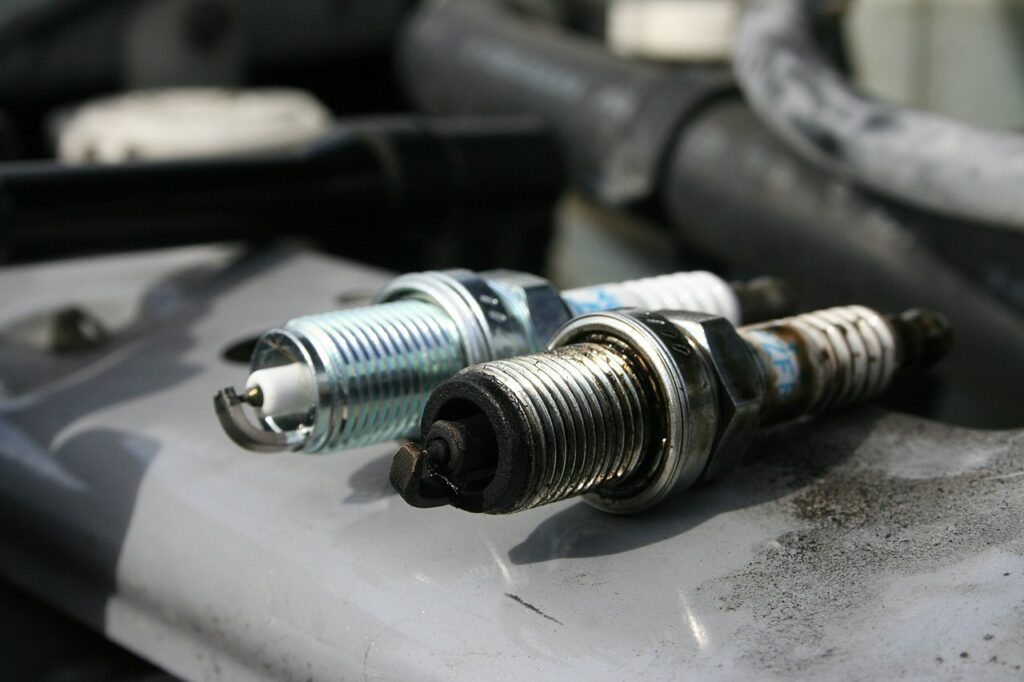Spark plugs are an essential part of any engine, and keeping them in good working order is crucial to maintaining peak performance. Dielectric grease is a great way to protect your spark plugs from corrosion and keep them working like new.
- Dielectric grease is a silicon-based compound that prevents corrosion and electrical leakage
- It can be applied to the spark plug threads and boot before installation
- When applying dielectric grease, use a small amount on a clean cloth or brush and apply it evenly over the area you wish to protect
- If you are using dielectric grease on spark plugs, make sure not to get any on the electrode as this can cause misfires
Is Dielectric Grease Needed for Spark Plugs?
Dielectric grease is an insulating compound that is often used to protect electrical connections from corrosion. It can also be used to help prevent moisture and dirt from entering the connection. When used on spark plugs, dielectric grease can help to prevent corrosion of the metal surfaces and improve the conductivity of the connection.
Can You Use Too Much Dielectric Grease on Spark Plugs?
No, you cannot use too much dielectric grease on spark plugs. Dielectric grease is an insulating material that prevents electrical current from flowing between two conductive surfaces. It is commonly used to lubricate and protect electrical connections from moisture and corrosion.
How Do You Apply Dielectric Grease?
Dielectric grease is a silicon based compound that is used as an insulator and lubricant. It can be applied to electrical connectors to prevent corrosion and help with making connections. Dielectric grease can also be used on O-rings, gaskets and seals to help with sealing and preventing leaks.
To apply dielectric grease, simply put a small amount on your finger or a cotton swab and rub it onto the surface you wish to treat. Make sure you cover the entire surface evenly. Once you have applied the grease, you can then connect your electrical components or install your seals.
Where Should You Not Use Dielectric Grease?
Dielectric grease is an important tool in many electrical applications, but it’s not suitable for everything. Here are three places where you shouldn’t use dielectric grease:
1. On bare metal surfaces: Dielectric grease is an insulator, so it will prevent electrical contact between two metal surfaces.
This can be a problem if you’re using the grease to protect against corrosion – the very thing it’s supposed to do! – or if you need to make an electrical connection between two pieces of equipment.
2. In high-voltage applications: Dielectric grease breaks down at high voltages and can cause arcing and other problems.
So, if you’re working with anything that uses more than about 30 volts, steer clear of dielectric grease.
3. In areas subject to extreme temperatures: Dielectric grease has a relatively low melting point, so it can start to break down and lose its efficacy at temperatures above about 150 degrees Fahrenheit (65 degrees Celsius). That means it’s not ideal for use in very hot environments like engines or ovens.

Credit: www.carcarehacks.com
Should I Use Dielectric Grease on Spark Plugs
Spark plugs are a vital component of your engine, and it’s important to keep them in good working order. One way to do this is to use dielectric grease on the spark plug threads. This helps to prevent corrosion and ensures a good connection between the spark plug and the engine.
Dielectric grease is a type of silicone lubricant that can withstand high temperatures. It’s also waterproof, which makes it ideal for use on spark plugs. When applied to the threads, it forms a barrier that keeps moisture and dirt out.
This helps to prolong the life of your spark plugs and keep them working properly.
Applying dielectric grease is easy – simply apply a small amount to the threads before screwing in the spark plug. Be sure not to get any on the electrode or tip of the plug, as this can affect performance.
If you’re not sure how much to use, start with a pea-sized amount and add more if needed. Too much grease can actually cause problems, so it’s better to err on the side of caution.
If you’re looking for ways to extend the life of your spark plugs, dielectric grease is definitely worth considering.
It’s easy to apply, inexpensive, and does an excellent job of protecting against corrosion and moisture damage.
Conclusion
Spark plugs are an important part of a car’s engine, and dielectric grease can help keep them working properly. Dielectric grease is a thick, oily substance that acts as an insulator. It helps to prevent electrical current from flowing between two metal surfaces, like the spark plug’s electrode and the metal casing around it.
When you apply dielectric grease to a spark plug, you’re essentially creating a barrier between the electrode and the metal casing. This barrier prevents corrosion and keeps the electrical current flowing smoothly. Dielectric grease also helps to lubricate the connection between the two metal surfaces, which can prevent damage over time.
Applying dielectric grease to your spark plugs is easy – just use a small amount on your finger and rub it onto the electrode. You don’t need to use a lot, just enough to create a thin layer. Once you’ve applied the dielectric grease, reassemble your car’s engine and start it up as usual.
The greased spark plugs should work just like new!
